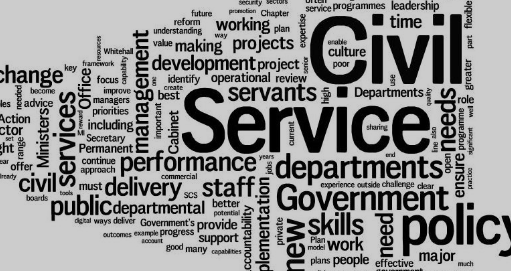
Civil service careers stand as a cornerstone of governance and public administration, encompassing a diverse range of roles that play a crucial role in the functioning of governments at various levels. From ensuring the smooth implementation of policies to providing essential services to the public, civil servants are the dedicated professionals who work tirelessly to maintain the machinery of public administration. In this extensive exploration, we delve into the multifaceted world of civil service careers, covering roles, responsibilities, educational pathways, challenges, and the enduring significance of these careers in the fabric of society.
Introduction to Civil Service Careers
1 Defining Civil Service
Civil service refers to a collective body of individuals employed by the government to execute public policies and administer government functions. These individuals, known as civil servants, work in various government agencies, departments, and ministries at local, regional, and national levels.
2 The Significance of Civil Service
Civil service careers hold immense significance in the governance structure of a country. Civil servants are responsible for the implementation of laws, the delivery of public services, and the execution of policies formulated by elected representatives. Their work influences the lives of citizens, shapes public policy, and contributes to the overall well-being of society.
Roles and Responsibilities of Civil Servants
1 Policy Implementation
One of the primary roles of civil servants is to implement government policies. This involves translating legislative decisions into practical actions, ensuring that policies are executed efficiently and effectively.
2 Public Service Delivery
Civil servants are often at the forefront of delivering essential services to the public. This includes areas such as healthcare, education, transportation, and social services, where their efforts directly impact the quality of life for citizens.
2.3 Administrative Functions
Civil servants engage in a wide range of administrative functions, including record-keeping, procurement, budgeting, and personnel management. Their administrative roles are crucial for the smooth operation of government agencies.
4 Regulatory Oversight
In many cases, civil servants play a regulatory role, overseeing compliance with laws and regulations. This can involve monitoring industries, ensuring environmental compliance, and maintaining standards of public safety.
5 Advising Elected Officials
Civil servants provide valuable expertise and advice to elected officials. Their in-depth knowledge of specific policy areas aids policymakers in making informed decisions that align with the broader goals of governance.
Educational Pathways for Civil Service Careers
1 Educational Background
Civil service careers often require a solid educational foundation. Many civil servants hold at least a bachelor’s degree, and in certain specialized fields, advanced degrees such as master’s or doctoral degrees may be preferred.
2 Fields of Study
The fields of study for civil service careers are diverse and depend on the specific role. Common areas of study include public administration, political science, law, economics, and social work. These fields equip individuals with the knowledge and skills needed for effective public service.
3 Competitive Examinations
In some countries, entry into civil service positions is determined through competitive examinations. These exams assess the candidate’s knowledge, analytical abilities, and suitability for specific roles within the civil service.
4 Professional Development
Civil servants engage in continuous professional development to stay abreast of changes in policies, regulations, and best practices. Workshops, training programs, and advanced degrees are common avenues for ongoing education.
5 Specialized Training
Certain civil service roles require specialized training. For example, law enforcement officers, healthcare administrators, and environmental regulators may undergo specific training programs to enhance their skills in their respective domains.
Skills Required for Civil Service Careers
1 Analytical Skills
Civil servants must possess strong analytical skills to understand complex issues, evaluate policies, and make data-driven decisions. Analytical abilities enable them to assess the impact of policies on the community.
2 Communication Skills
Effective communication is crucial for civil servants. They need to convey information clearly to the public, collaborate with colleagues, and present recommendations to policymakers.
4.3 Problem-Solving Abilities
Civil servants encounter various challenges that require creative problem-solving. Whether addressing service delivery issues or regulatory concerns, the ability to devise practical solutions is invaluable.
4 Leadership and Management Skills
In leadership roles, civil servants need strong management skills to guide teams, allocate resources, and ensure the efficient functioning of government departments.
5 Ethical Decision-Making
Integrity and ethical decision-making are foundational to civil service careers. Civil servants often handle sensitive information and must make decisions that prioritize the public good.
Challenges Faced by Civil Servants
1 Political Pressures
Civil servants may face political pressures that influence their decision-making. Navigating the balance between serving the public interest and aligning with political agendas can be a significant challenge.
2 Bureaucratic Constraints
The bureaucratic nature of many government institutions can lead to inefficiencies and delays. Civil servants may encounter challenges in streamlining processes and implementing reforms.
3 Budgetary Constraints
Government agencies often operate within budgetary constraints. Civil servants must find ways to deliver services effectively with limited resources, requiring strategic financial management.
4 Public Scrutiny
Civil servants are subject to public scrutiny, especially when policies or services are perceived as inadequate. Managing public expectations and addressing concerns can be a demanding aspect of the job.
5 Evolving Technological Landscape
Keeping pace with technological advancements is a continuous challenge for civil servants. Embracing digital transformation and ensuring the security of information systems are ongoing priorities.
Evolving Trends in Civil Service Careers
1 Digital Transformation
The integration of digital technologies is transforming how civil services operate. E-government initiatives, online service delivery, and data-driven decision-making are becoming integral components of modern civil service.
2 Citizen Engagement
There is a growing emphasis on citizen engagement in policymaking. Civil servants are increasingly leveraging technology to gather public input, ensuring that policies align with the needs and preferences of the community.
3 Diversity and Inclusion
There is a heightened focus on promoting diversity and inclusion within civil service organizations. Efforts are being made to ensure that the civil service reflects the diversity of the population it serves.
4 Performance Metrics and Accountability
Governments are placing greater emphasis on measuring the performance of civil service agencies. Clear metrics and accountability mechanisms are being implemented to enhance transparency and efficiency.
5 Remote Work and Flexibility
The COVID-19 pandemic has accelerated the adoption of remote work in civil service. Flexible work arrangements are becoming more prevalent, allowing civil servants to balance work and personal responsibilities.
Future Prospects for Civil Service Careers
1 Technological Integration
The future of civil service will see increased integration of emerging technologies. Artificial intelligence, data analytics, and automation will play a significant role in enhancing the efficiency of government operations.
2 Resilience and Crisis Management
Civil servants will continue to play a crucial role in crisis management and resilience planning. The ability to respond effectively to emergencies, whether natural disasters or pandemics, will be a key focus.
3 Environmental Sustainability
Governments are placing a greater emphasis on environmental sustainability. Civil service careers related to environmental protection, climate change mitigation, and sustainable development will be in demand.
4 Global Collaboration
In an interconnected world, civil servants will engage in increased global collaboration. Addressing transnational issues, sharing best practices, and participating in international initiatives will become more common.
5 Public-Private Partnerships
Collaboration between the public and private sectors will be essential for addressing complex challenges. Civil servants may increasingly work with private organizations to deliver public services and implement projects.
Conclusion
Civil service careers, with their rich history and enduring importance, remain integral to the functioning of governments worldwide. The individuals who choose this path are not just employees; they are stewards of public trust, working diligently to serve the greater good. The challenges they face, from political pressures to bureaucratic constraints, underscore the complexity of their roles. Yet, as the civil service adapts to evolving trends, embraces technological advancements, and focuses on inclusivity, the future prospects for these careers are promising.
As society continues to change, the resilience, adaptability, and dedication of civil servants will be pivotal in addressing emerging challenges. Whether it’s the implementation of innovative policies, the delivery of essential services, or the management of crises, civil service careers will continue to shape the course of governance and contribute to the well-being of communities. The journey of navigating a civil service career involves not only fulfilling professional duties but also embodying the principles of public service and contributing to the betterment of society.







